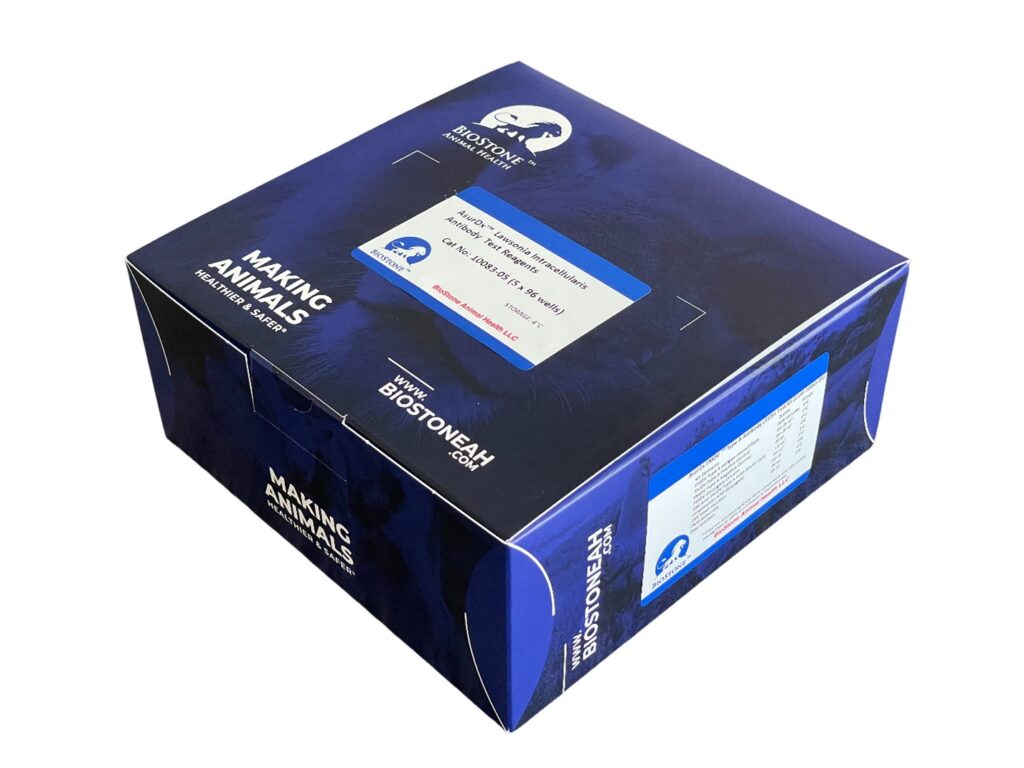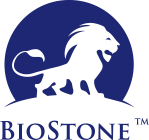AsurDx™ Lawsonia Intracellularis Antibody Test
The AsurDxTM Lawsonia Intracellularis Antibody Test Kit is designed for the detection of pig antibodies specific to Lawsonia intracellularis (LI).

Feature
- Detects Lawsonia intracellularis antibodies in pig serum/plasma;
- Procedures last less than 75 minutes;
- Provides a simple, rapid, sensitive and cost-effective enzyme-based immunoassay (ELISA) screening method
*Availability/Distribution: Product is designed and developed by BioStone US Texas headquarter and manufactured/assembled by BioStone oversea subsidiaries or partners. Currently, the product is only available outside of the USA. Regulatory requirements vary by oversea countries; the product may not be available in your geographic area.
Specification
| Method | Competitive ELISA |
| Coated Antigen | LI antigen-coated Plate |
| Incubation Time | 75 minutes |
| Storage | At least 12 months |
| Specificity | LI serogroup-specific pig antibodies |
Order Information
| Catalog Number | 10083-02 | 10083-05 |
| Plates | 2 plates | 5 plates |
| Reactions | 192 | 480 |
| Plate Format | 12 X 8-well strips | 12 X 8-well strips |
About Disease
The lesions Porcine Proliferative Enteropathy (PPE), also known as ileitis, were first described in pigs in Ames, IA by Biester and others in 1931. The cause of PPE is Lawsonia intracellularis an obligately intracellular bacterium. It grows in the cytoplasm of intestinal epithelial cells and causes the thickening of the mucosa and colon. Infection of pigs with this bacterium is consistently linked with the presence of proliferative lesions of the mucosa of the ileum and large intestine. The disease has a worldwide distribution and occurs commonly in all pig raising regions and in all farm management systems.
Lawsonia intracellularis does not grow on conventional bacterial media and requires tissue culture under reduced oxygen tension. However, serological diagnosis of PPE is commonly achieved by means of tests such as indirect immunoflourescence assays (IFA) or immuno-peroxidase monolayer assays (IPMA), both of which involve cumbersome procedures to culture the organism in-vitro. ELISA tests are advantageous in that they are easy to perform and do not require culture of the organism.
